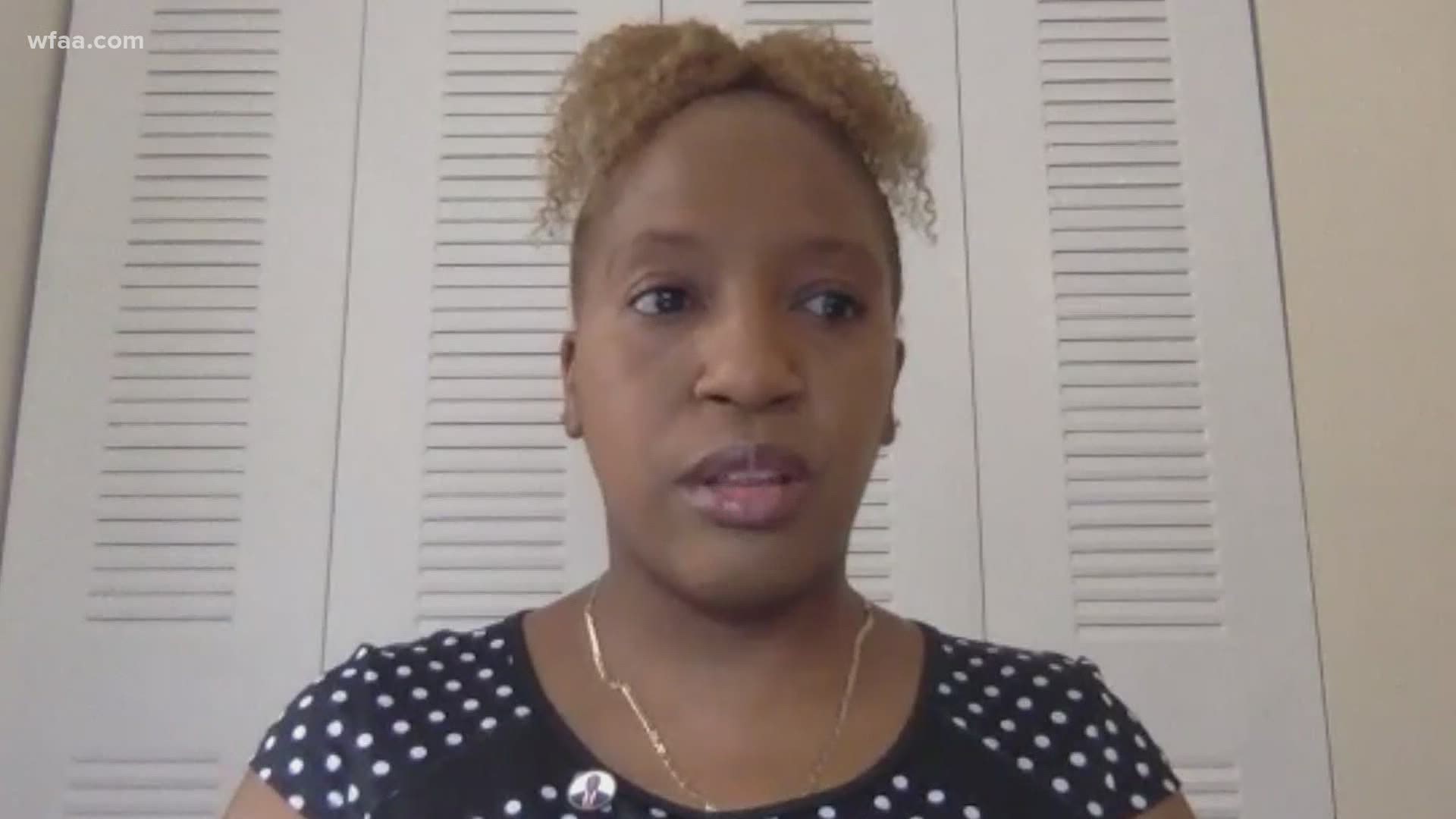FORT WORTH, Texas — Every time Alissa Findley hears of a law enforcement-involved killing, she relives getting the phone call when her brother Botham Jean was murdered in 2018.
“It’s like reliving your own trauma,” she said. “It all brought back that trauma, so I have moments where I just shake uncontrollably.”
For her, the marches that became a worldwide movement are bittersweet.
“I try my best to take time out just to breathe, to process,” Findley said.
A week ago, Findley was at the White House with seven other families of black men, some of whom were also killed by police, including 23-year-old UNT student Darius Tarver.
His father, Kevin Tarver, says Darius was having a mental health crisis when he was shot and killed in January while holding a meat cleaver and frying pan.
“We wanted this to be personal. We wanted it to be emotional,” Kevin Tarver said of the meeting. “We’re losing our fathers. We’re losing history. We’re losing children and we’re losing our future.”
Jean’s case was the only murder conviction in the group, and President Trump promised federal investigations for each family.
“We’re definitely going to try to make sure that he keeps his promise,” Findley said. “If anything can be done to bring justice to their loved one then we will take it.”
The president also signed an executive order to improve training, create a database to track police officer misconduct and incentivize federal grants that push departments to involve social workers and mental professionals more often.
“If we keep that same energy and keep the pressure on, we could have a lot more,” Findley said.
Findley feels what’s happening now is different than years past, but it can’t stop now.
“It’s not over,” she said. “It’s not close to being over and we need to be focused.”

